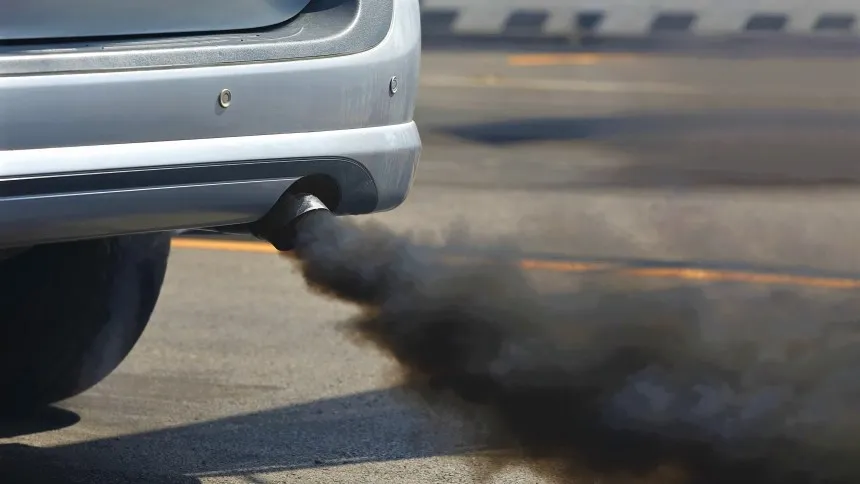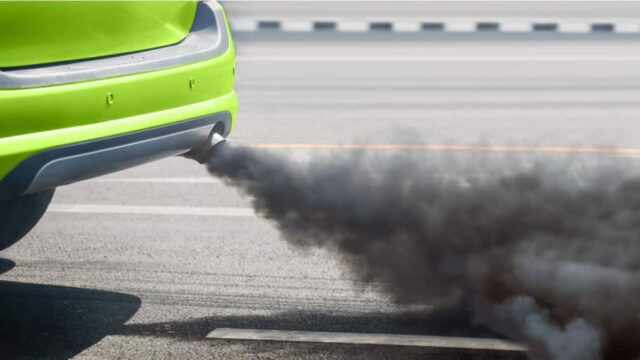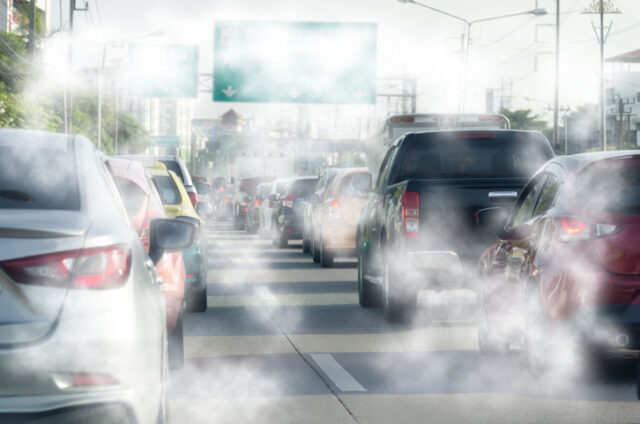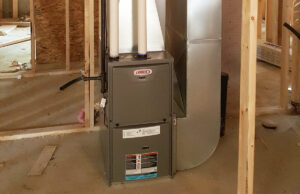
Black diesel exhaust can occur when the exhaust from a diesel engine appears black or dark-colored, indicating an issue with the engine’s combustion process. Understand the causes and solutions to prevent further engine damage and maintain your performance efficiently. Here is what you need to know about black diesel exhaust and how Jaltest diagnostic kits can help diagnose and solve this problem:
Causes of Black Diesel Exhaust

Overloading the Engine
If you’re loading your diesel engine beyond its designed capacity, you’re overwhelming its ability to burn fuel efficiently. When an engine is overloaded, it can produce more black smoke than usual as the fuel isn’t burned properly. This can lead to increased emissions and potential engine damage. Check that you don’t exceed the engine’s load capacity and conduct regular maintenance checks.
Clogged Air Filters
A clogged air filter can lead to poor engine performance, as it restricts the airflow to the combustion chambers, leading to black smoke. Filters pick up dirt, dust, and other contaminants. Regularly replace or clean the air filter. A clean air filter can help the engine receive the required oxygen to burn fuel efficiently, reducing the risk of black diesel exhaust.
Dirty Fuel Injectors
When fuel injectors become clogged with dirt, they can cause incomplete fuel combustion. Dirty fuel injectors can lead to excessive black smoke, reduced fuel efficiency, and potential engine damage. Carry out regular maintenance checks and confirm that the injectors are clean and working correctly.
Worn Piston Rings
Worn piston rings may allow engine oil to get into the combustion chamber and mix with the fuel. This can cause incomplete combustion and dark smoke. If you notice black smoke coming from your engine, conduct a thorough engine check, including checking for worn piston rings.
Damaged Turbochargers
The turbocharger can help increase power and efficiency by compressing the air as it enters the engine. If the turbocharger is damaged or not working correctly, it can cause black exhaust smoke due to insufficient airflow. Common causes of turbocharger issues include wear and tear, debris buildup, and oil leaks. Have the turbocharger inspected and tested regularly to address any issues.
Damaged Hoses
The hoses and connectors that transport air, fuel, and fluids throughout the engine can also be a source of black exhaust smoke if they become damaged or leaky. Damaged hoses can cause a decrease in pressure, leading to poor combustion and exhaust issues. Common problems that can cause damage to hoses include cracks, kinks, and leaks. Inspecting the hoses and connectors regularly can help prevent this issue.
EGR Valve Issues
The exhaust gas recirculation (EGR) valve can help reduce emissions by recirculating the exhaust gas back into the combustion chamber. This component can fail, causing black diesel exhaust, among other issues. Problems with the EGR valve can be caused by a buildup of carbon deposits and damaged or worn-out valves. They can also be caused by issues with the solenoid, which controls the valve’s opening and closing. Cleaning or replacing the EGR valve can resolve this issue.
Using Jaltest Diagnostic Kits

Jaltest diagnostic kits can be a reliable and cost-effective way to determine what is causing black exhaust in your engine. The kits use special software and sensors to assess engine performance and detect any issues producing soot or other pollutants in the exhaust system.
The kits come equipped with all the necessary tools for testing engine performance. They include an OBD scanning tool, emission analyzer, oil pressure tester, vacuum pressure tester, fuel pressure tester, and manifold gauge set. With these tools, mechanics can accurately gauge how each part of the engine functions and identify potential problems.
Once all necessary data has been collected from the diagnostic tests, Jaltest’s advanced software can analyze it. It can recommend solutions for resolving any underlying issues causing excessive emissions. These solutions could range from simple fixes, like replacing worn parts, to more complicated ones, like overhauling entire systems.
Health effects of exposure to black diesel Exhaust
Respiratory problems: Black diesel exhaust can cause respiratory problems such as asthma, bronchitis, and emphysema. Exposure to diesel exhaust particles can also exacerbate existing respiratory conditions.
Cardiovascular problems: Exposure to black diesel exhaust has been linked to an increased risk of heart attacks, strokes, and other cardiovascular problems.
Cancer: Long-term exposure to black diesel exhaust has been linked to an increased risk of lung cancer and other types of cancer.
Neurological problems: Exposure to black diesel exhaust has been linked to neurological problems such as headaches, dizziness, and fatigue.
Reproductive problems: Exposure to black diesel exhaust has been linked to reproductive problems such as reduced fertility and increased risk of miscarriage.
Skin and eye irritation: Contact with diesel exhaust can cause skin and eye irritation.
Premature death: Exposure to black diesel exhaust has been linked to premature death.
Ways to reduce emissions

Reducing black diesel exhaust emissions is an important step towards a cleaner and healthier environment. Here are some ways to reduce black diesel exhaust emissions:
• Use cleaner fuels: Cleaner fuels such as ultra-low sulfur diesel (ULSD) and biodiesel can significantly reduce black diesel exhaust emissions.
• Retrofitting: Retrofitting vehicles with emission control devices like diesel particulate filters (DPFs) and selective catalytic reduction (SCR) systems can reduce black diesel exhaust emissions by up to 90%.
• Maintenance: Regular maintenance of diesel engines can help reduce black diesel exhaust emissions by keeping the engine running efficiently.
• Idle reduction: Avoiding unnecessary idling can reduce black diesel exhaust emissions and save fuel.
• Efficient driving: Efficient driving practices such as maintaining a steady speed, avoiding sudden accelerations and decelerations, and avoiding overloading can help reduce black diesel exhaust emissions.
• Alternative transportation: Consider using alternative transportation such as public transportation, biking, or walking when possible to reduce black diesel exhaust emissions.
• Upgrade to newer and cleaner vehicles: Newer diesel vehicles are equipped with advanced emission control technologies that can significantly reduce black diesel exhaust emissions.
By implementing these measures, individuals and organizations can play an active role in reducing black diesel exhaust emissions and promoting a cleaner and healthier environment.
Prevent Black Diesel Exhaust

Preventing black diesel exhaust requires regular maintenance, including replacing air filters, cleaning or replacing fuel injectors, and not overloading the engine. By understanding the causes of black smoke emissions, you can take the proper steps to diagnose and solve this problem using a Jaltest diagnostic kit.









